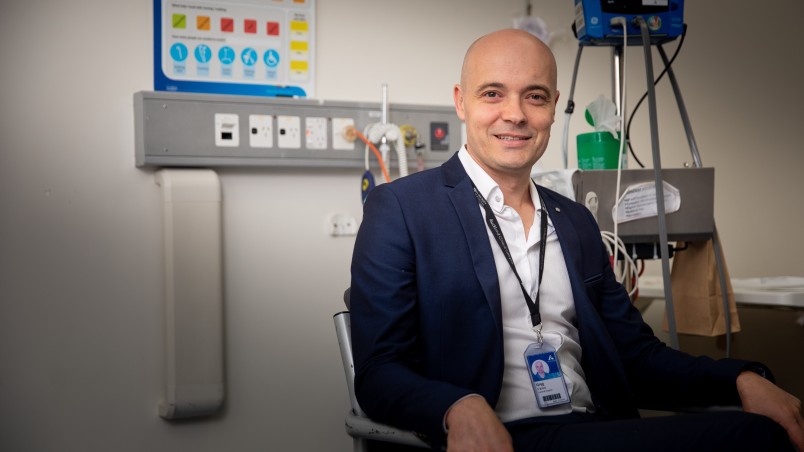A team led by Professor Greg O’Grady, surgeon and scientist based at the University of Auckland, has pioneered a range of cutting-edge medical devices to diagnose, monitor and treat some of the most poorly understood and challenging gut conditions in clinical medicine.
With renewed funding from an HRC 2023 Programme Grant, the team can now focus on moving a range of technologies out of the laboratory and into the hands of clinicians, on a global scale.
Problems such as chronic nausea, indigestion, incontinence, and irritable bowel syndrome are highly prevalent in New Zealand. The team’s unique high-resolution devices can accurately measure and map gastrointestinal activity and have the potential to revolutionise the field of gastroenterology, meaning less ‘trial-and-error care’ and more personalised therapy.
“Existing tests requiring scopes or x-rays are excellent at diagnosing structural problems, such as polyps, inflammation or cancer, but they can’t identify ‘functional’ issues in the gut, which is what a greater number of patients suffer from,” says Professor O'Grady.
His team’s innovations are non-invasive and designed to provide answers to gut issues within hours, not months. Their most mature invention to date – a stretchable electronic device worn over the stomach to measure signals coming from the stomach (much like an ECG records the electrical signal of the heart) – is already in use in a number of clinics to produce accurate reports on gastric motility.
Their new programme involves 17 clinical studies and an assembled consortium of experts from six countries. “While this programme is firmly centred in Aotearoa New Zealand, we will act as the hub for an international network of partnerships working together to reform care in complex gastrointestinal disorders, for the wellbeing of future patients globally.”
